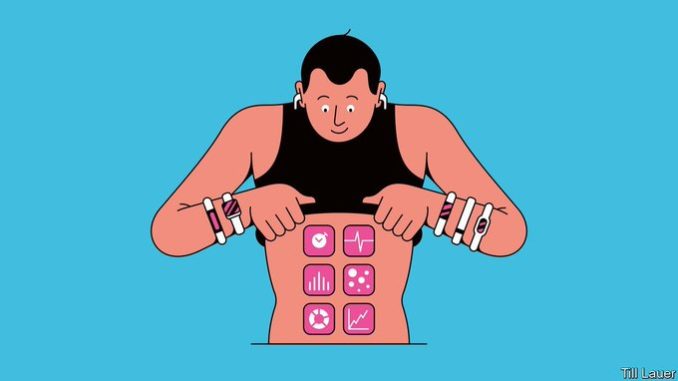
It is a stealthy killer. When the heart’s chambers beat out of sync, blood pools and clots may form. Atrial fibrillation causes a quarter of more than 100,000 strokes in Britain each year. Most of those would never happen if the heart arrhythmia were treated, but first it has to be found. Tests are costly and inaccurate, but Apple Watches, and soon Fitbits, can detect it, are far cheaper and can save those whose lives are in danger.
This is just one example of the revolution about to transform medicine. Smartwatches and -rings, fitness trackers and a rapidly growing array of electronically enhanced straps, patches and other “wearables” can record over 7,500 physiological and behavioural variables. Some of them are more useful than others, obviously, but, as our Technology Quarterly in this issue explains, machine learning can filter a torrent of data to reveal a continuous, quantified picture of you and your health.
